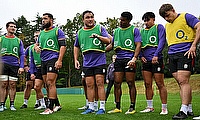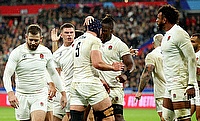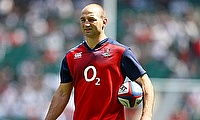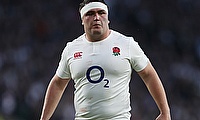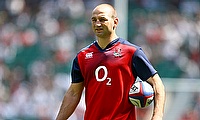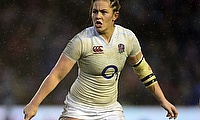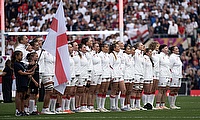Jodie Ounsley Interview: Changing misconceptions, women’s rugby on the rise, and life as “Fury”
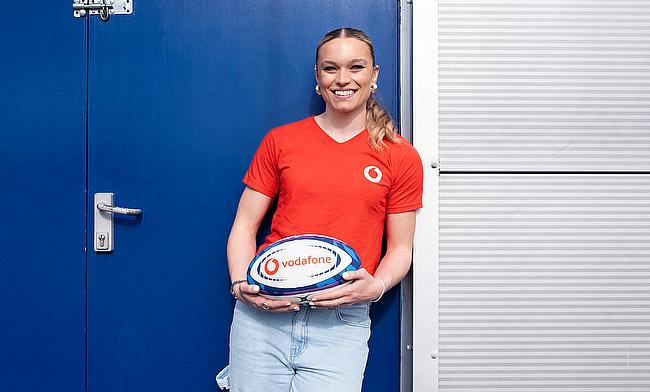
Ounsley is proudly supporting Vodafone’s ‘See it. Believe it.' campaign, which aims to challenge misconceptions about women’s rugby and connect the sport with new audiences
©Vodafone / FUSE
At just 24, Jodie Ounsley has already lived a life defined by defiance.
Born profoundly deaf, she’s turned what many might see as a limitation into her greatest strength.
The former England rugby sevens player made history as the first deaf woman to represent a senior England side, before swapping the pitch for the TV spotlight when she became “Fury” on the BBC’s hit revival of Gladiators.
Her story is one of resilience, determination and pride. Whether she’s charging across the pitch, smashing a Guinness World Record, or using her platform to promote inclusion in sport, Ounsley represents a new generation of athletes rewriting the rules of representation, and she is doing so by being grounded and unapologetically herself.
And with women’s rugby now reaching record audiences, Ounsley hasn't been too far away from it all.
Last month, we saw the Red Roses lift the Rugby World Cup in front of 81,885 fans at Allianz Stadium. Ounsley was involved throughout the tournament, engaging with supporters from across the country and taking part in the media coverage.
"I felt so grateful to be involved, I loved it. It’s a sport I care so much about and a lot of the players I watched have been ex-teammates in the PWR [Premiership Women's Rugby].
"I felt so happy that they were having this moment, and it felt like it was finally getting the recognition it deserves. I felt privileged that the platform I have now, I’m more involved in a different environment in the TV world.
"I thought, 'How cool is this that I can show the game to a different group of audiences and try and get the conversation going?' To be on Morning Live and The One Show, I felt it was a cool opportunity to tell people what women’s rugby is all about."
The Women’s World Cup final last month not only marked the most-watched women’s rugby union match ever on UK television but also became the most-watched rugby match of the year.
The numbers tell their own story:
- A total TV audience of 12 million across the full tournament
-10.5 million streams on BBC iPlayer and BBC Sport digital platforms
- 444,465 tickets sold (Three times more than the 2021 World Cup)
- 53% of the crowd at the final were female
Figures like this highlight how far the sport has come, and Ounsley shared her thoughts on how the tournament could transform women’s rugby forever.
"I’m relieved and so chuffed they won," she says. "It felt weird as so many people were backing Canada because it was such a big moment for them, but then others were wanting the Red Roses to win because it was a home World Cup.
"I’m so buzzing for them and to think what this will do for the game and the number of girls that will now want to play for their local clubs. Seeing people’s perceptions of women’s rugby, I think it’s completely been changed.
"The energy felt different compared to the last World Cup. It felt like a breaking point. We’ve seen it with the Lionesses and what they’ve created in the Euros so I think women’s rugby could go in that direction."
The new PWR season kicked off last Friday, and the opening match between Harlequins Women and Loughborough Lightning - played at The Stoop - drew just under 3,000 fans, a 239 per cent increase on the same fixture last season.
Across all clubs, attendances in the first round rose by 183 per cent compared to the same stage last year.
Ounsley is hopeful that the World Cup feel-good factor will continue to inspire new fans.
"I’m excited for this. I’m hoping some of the momentum from the World Cup will boost the PWR and get fans to the games.
"Your Quins, your Sarries, obviously Gloucester will make the top four but things can change with new players, new set-ups.
"There’s not been much of a break for the girls since the World Cup. Some of the Red Roses were at Pride of Britain last week. The fact they are getting rugby players invited to events like that, Ellie Kildunne was presenting one of the awards. Again, it’s just that exposure outside of the rugby world, a bit like the Lionesses so it can all add up."
Ounsley's competitive edge didn’t fade when she decided to retire last year.
On Gladiators, she adopted the name “Fury”. Her character represents energy, fearlessness, and resilience - qualities she’s shown her whole life. As the show’s first deaf Gladiator, she broke another huge barrier.
"Being involved in Gladiators was amazing," she says. "It was terrifying as it was a completely new world. I didn’t know what I was getting myself into, but now to see the response is great.
"It’s such a family show. It’s all about the kids which is so cool, especially as my persona and character is Fury. I love the fact I’m still able to showcase rugby and women’s rugby by being physical on a TV show. If kids can see Fury tackling people, they might have that moment to think, 'Let’s give rugby a go.' I take a lot of pride in that."
Earlier this year, Vodafone launched a new campaign called “See It. Believe It.” which aims to challenge misconceptions about women’s rugby and connect the sport with new audiences.
As part of the campaign, Ounsley is working with storytelling experts Goal Click to provide exclusive behind-the-scenes content from all levels of the game. Unsurprisingly, the 24-year-old is incredibly passionate about the initiative.
“With women’s rugby, a huge part of it is misconception and how people perceive the game," Ounsley explains.
"Their [Vodafone's] idea was to partner up with Goal Click. They are a storytelling platform, and it was a way of showing people behind the scenes through the players and fans, connecting the audience with the players and fans to see how amazing the sport is.
"They found that the most negative misconceptions around women’s rugby is that people haven’t watched a game so it’s about getting people to watch it, give it a go and potentially changing their mindset. I think we need more campaigns and brands like that, getting on board and backing the sport."
From the rugby field to television screens, Ounsley continues to show that strength comes in many forms. Whether as a presenter, Gladiator, or an ambassador for women’s sport, her message remains clear: see it, believe it and make it happen.


